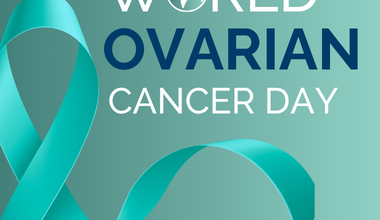Not Tomorrow!: “It’s Time to Act!”

Viral hepatitis is on the brink of becoming the world’s leading infectious disease killer, surpassing Tuberculosis. According to the World Health Organisation (WHO), in the 30 seconds it took you to read the first part of this article, someone, somewhere on Planet Earth, has died from a hepatitis-related illness. Each year on the 28th of July, the world unites to raise awareness about a silent yet deadly disease. World Hepatitis Day is dedicated to raising awareness about hepatitis and its global impact. This year, the theme is “It’s time to act”. The aim is to highlight the need to accelerate actions on better prevention, diagnosis and treatment to reduce the death toll of hepatitis globally.
Hepatitis is an inflammation of the liver caused by a variety of infectious viruses and non-infectious agents, leading to a range of potentially fatal health problems. The hepatitis virus has five main strains: A, B, C, D, and E. While each strain causes liver disease, they differ in transmission methods, illness severity, geographical distribution, and prevention strategies. The virus is primarily spread through contact with infectious body fluids,such as blood, mother-child at birth, unprotected sexual contact and unsafe injections.The A variant is transmitted through ingestion of contaminated food and water. Types B and C are particularly concerning, as they cause chronic disease in hundreds of millions of people and are the leading causes of liver cirrhosis, liver cancer, and viral hepatitis-related deaths. Globally, an estimated 354 million people live with hepatitis B or C, yet testing and treatment remain out of reach for most.
Nigeria contributes 26% of the global total of people infected with the virus, with more than 90 million of the population living with it. There is a greater prevalence of Hepatitis B and C virus accounting for 8.1% and 1.1% respectively among the young and old. These rates translates to millions of people living with chronic hepatitis infections, with many of them unaware of their status due to limited access to efficient diagnostic services. For emphasis, of the 20 million Nigerians living with HBV or HCV or even both, more than 80% do not know their status. Asides poor diagnostic services that have contributed to the increasing number of deaths due to the Virus, there is also a large knowledge deficit on the presentation and prognosis of the disease. There is need for increased awareness especially in Nigeria. It is important to note that infection with the Hepatitis Virus is not a death sentence, and early detection is the best way to overcome the complications of this disease.
The need for an immediate call to action is still being hammered by the WHO as the theme for World Hepatitis Day 2024 suggests. It is important that everyone is aware that delays in testing, treatment, and vaccination can have severe consequences, making it crucial for governments, healthcare providers, and individuals to prioritize hepatitis eradication efforts. The World Hepatitis Alliance and WHO are leading numerous campaigns and initiatives to support this cause, urging policy changes, better healthcare infrastructure, and increased funding for research. It goes without saying that timely diagnosis is the most crucial tool in managing hepatitis effectively. World Hepatitis Day aims to encourage widespread testing and early diagnosis while also emphasizing the need for increased vaccination coverage, especially in regions with high prevalence rates like Nigeria. It advocates for governments and health organizations to prioritize hepatitis vaccination programs and ensure that vaccines are accessible and affordable for all. For people who are infected with the virus and are aware of their status, it is important that they get access to effective treatment and care. Advances in medical research have made Hepatitis B and C treatable. However, many people, particularly in low and middle-income countries, still face barriers to accessing these treatments. World Hepatitis Day calls for improved access to antiviral therapies and comprehensive care for those affected. “It’s time to act” urges policymakers to invest in healthcare infrastructure, reduce the cost of treatments, and eliminate barriers to care.
In some cases, stigma and discrimination associated with hepatitis can prevent individuals from seeking testing and treatment. World Hepatitis Day seeks to combat these issues by promoting understanding and empathy, fostering an environment where people feel safe to disclose their status and seek help. Reducing stigma is essential to improving the quality of life for those living with hepatitis and ensuring they receive the care they need.Policy changes are also essential to creating an enabling environment for hepatitis prevention and treatment. This global event advocates for the formulation and implementation of policies that support comprehensive hepatitis care. It urges governments to integrate hepatitis services into national healthcare systems, ensuring sustainable and long-term solutions.
The WHO has set an ambitious target to eliminate viral hepatitis as a major public health threat by 2030. Achieving this goal requires comprehensive and coordinated global effort. By raising awareness, promoting testing and diagnosis, encouraging vaccination, enhancing treatment and care, addressing stigma, strengthening partnerships, driving policy changes, commemorating progress, mobilizing resources, and empowering communities, we can make significant strides towards eliminating hepatitis as a public health threat by 2030. The theme “It’s time to act” is more than a tag for this global event; it is a clarion call to the world to step up and take decisive action not soon, not next year, not tomorrow, but now.
Mercy Ayoade




